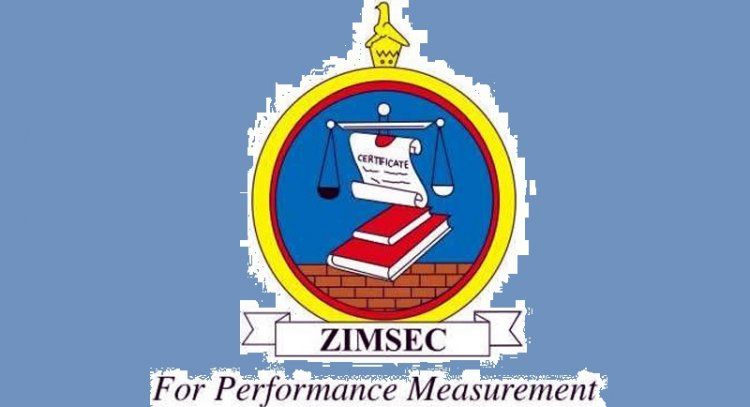The ZIMSEC Ordinary Level exams results recently came out. The overall pass rate for 2021 was 26.34 percent (a 1.57 percent improvement from 2020). This signals a gradual recovery from the scourge of the pandemic. In 2019 the pass rate was 31.6 percent so this improvement last year is a good sign. How are these pass rates are calculated? 1n 2021, 148005 students sat for at least 5 subjects. Out of that number 40473 got grades C or better in at least 5 subjects. You express that as a percentage and that is how you get the pass rate. Anyways, our discussion today pertains to the number of subjects some students are sitting for.
Writing Many Subjects – Let Us Examine That
Whenever results come out you can bet there will be result slips that will trend. This time around one of the result slips trending has 20 A’s. This has gotten so many people talking; that interesting viewpoints have emerged. It is clear over the past couple of years that this trend of writing over 10 subjects at the Ordinary Level is growing. I do not want to take away from the achievements though, congratulations on the sterling performance. However, we need to closely examine some dynamics. The 20 A’s example is not a personal dig at the student; it is just for illustration purposes.
An Expectation For ‘A-Class Students
It seems this trend is growing because it is somehow expected of ‘A’ class students. I can attest to how even in my days it was beginning to grow. I was an ‘A-class student and I wrote 10 subjects for my Ordinary Level. It was merely because it was expected of me to write that many. I can even confess that it was more about prestige than anything else. So many people have raised this issue and I do not blame them because it is mostly true. Students are being directly or indirectly pressured into sitting for too many subjects just to prove a point. It has even been pointed out that some teachers are to blame. As in, they are the ones who push some students to do many subjects for their selfish reasons. You know, clout chasing and the culture of wanting to set records.
The Argument For Scholarship Opportunities
Some are justifying these many subjects citing how they increase the chances of getting a scholarship. To a certain degree that is true but it is no longer just about the number A’s. The world has evolved and it has mostly been seen that academic excellence on its own is not enough. That is why selection criteria now focus more on personality-related traits. We are talking about things like extra-curricular activities, leadership accomplishments, volunteering, sporting, and the like. Unfortunately, it is almost taboo in Zimbabwe to prioritize those over books.
Is It A Sign Of Intelligence?
Is getting 20 A’s really or always a sign of intelligence? Some argue that it is whilst others think otherwise. I was in high school before and I remember that memorization was the order of the day. I hear it still mostly is the case and as such some people highly question the results thereof. Whilst memorization can be a remarkable skill not everyone has it. However, equating memorization to intelligence seems hard for some people to accept. This is especially so when you factor in how mostly theoretically oriented the local syllabi are.
Is The Extra Effort Worth It?
When someone proceeds from Ordinary Level to Advanced Level, 5 subjects are required, with a grade of C or better. This means in most cases, say, someone with 5 A’s will enrol for the same Advanced Level combination as some with 10, 15, or 20 A’s. Using that scenario it becomes pointless to sit for that many subjects. Some argue that it is worsened by the fact that those results matter most enrolling for Advanced Level. Afterwards, they will not matter at all. Normally for a job or further education openings you will usually see, ‘5 Ordinary Level subjects with grade C or better, including Maths and English’. At times it can be, ‘2 Advanced Level passes. I do know there are areas such as Actuarial Sciences where having numerous A’s is an automatic gate pass. However, for most of the study areas, many people feel the extra effort is not quite worth it.
ZIMSEC Standards Now Questionable
If you take a look at the 20 subjects for that student with 20 A’s you will notice something. They are practically about 9 subjects that have been disintegrated into 20 subjects. This means some of the subjects in question are watered down chunks of one area. It is like topics from one subject area are stretched into individual subjects. There are lots of people out there holding this view. Ask yourself why we never hear such feats under the Cambridge exam board. The integrity of ZIMSEC is highly questionable on this one.
Poor Career Guidance In Zimbabwe
Career guidance is lacking in Zimbabwe. I was looking at the 20 subjects in question; they represent Sciences, Arts, and Commercials. If students knew their intended career paths early on, they would zone in their focus. The concern is that students doing many subjects seem detached from projected career prospects. They are probably just doing it for fun, to prove a point, or because they are clueless about their future. I remember recently seeing someone who got 20 points at Advanced Level. What shocked me though was the sketchiness of their responses when asked about their desired degree path.
Another side
There is an interesting example of Taku Nhongo who trended years ago with a similar results slip in 2017, he had 18 subjects. fast forward to today and Taku launched an O level study app called Kytte. Taku states that one of the reasons he took many subjects was to learn the best study techniques. You cannot argue with what Taku has done as an example of something tangible and good coming from writing so many subjects.
This is a lengthy, contentious subject; so much more we can talk about. Let us hear your thoughts, kindly share them in the comments below. Should ZIMSEC put a cap on the number of subjects students should sit for?








